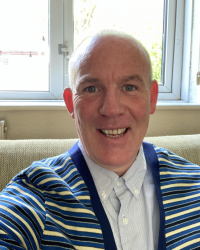Friendships
Life enables us to meet the most extraordinary people. Beyond our own families is our second group/a non blood family - friendships.

In early years when attending play school we have our first encounter outside of our family members. We connect, some more than others, by our similar ages and interests.
As a boy my interest was football and it was in the park where I found a bond with others with this similarity. The love of football brings anyone with the same passion together to an immediate mutual understanding. If you play well you can win approval; sometimes for the first time. Sport in general ultimately helps form friendships.
Musical taste, similar to sport, also brings people together. In my teens I recall innocently trying out musical genres and adopting some by the mimicking of the artist; sometimes even down to a dress code.
Fashion is another group former with lots of diversity. From dyed hair to sportswear this code of wear is stamped within friendship circles and brings style to life.
Sport, fashion and music are some of the identity creations that influence friendships, though they do not stand alone. Many other examples bring people together. With these similarities brings a connection and when in motion facilitate friendships that continue deepen in substance and sadly for some the word substance (drugs) can also appear.
Teen years are a brain changing and developing era. Emotions run thick, so if experimenting with external chemical reactions all sorts of behaviours can manifest. Anger and fear as primary emotions are often prevalent.
Painfully for some, friendships can end in tragedy as a result. Experiencing the death of a close friend can then bring trauma. The loss can be interpreted as unbearable for some. If this happens the friendship circle may become tight or could possibly disband for a period, or even permanently.
Work offers a new kind of friendship. The lunch break or after work pint. It’s said that some intimate relationships form in a similar profession. The workplace is a regular time we meet our colleagues and the time allocated is in proportion to the time we have with our families.
Life-long friends can be the most bonded. Having stood the test of time, these friends sometimes know us the best. Through spending decades together each nook and cranny of our lives have been lived in observation and sometimes support from our closest of friends.
Exploring our families in therapy is revealing, though there is also an importance of discovering a persons friendships. This builds an understanding of two types of relationships, to continue to see into a persons world, with more scope.
The information on both of these relationships lead into going further to explore romantic relationships to discover a deep sense of the persons experience of intimacy. Family and friendships hold some intimacy, however, romantic relationships often have an increased level of intimacy that is useful to understand in the formation of the therapeutic relationship developing between client and therapist.

Find a therapist dealing with Addiction
All therapists are verified professionals






